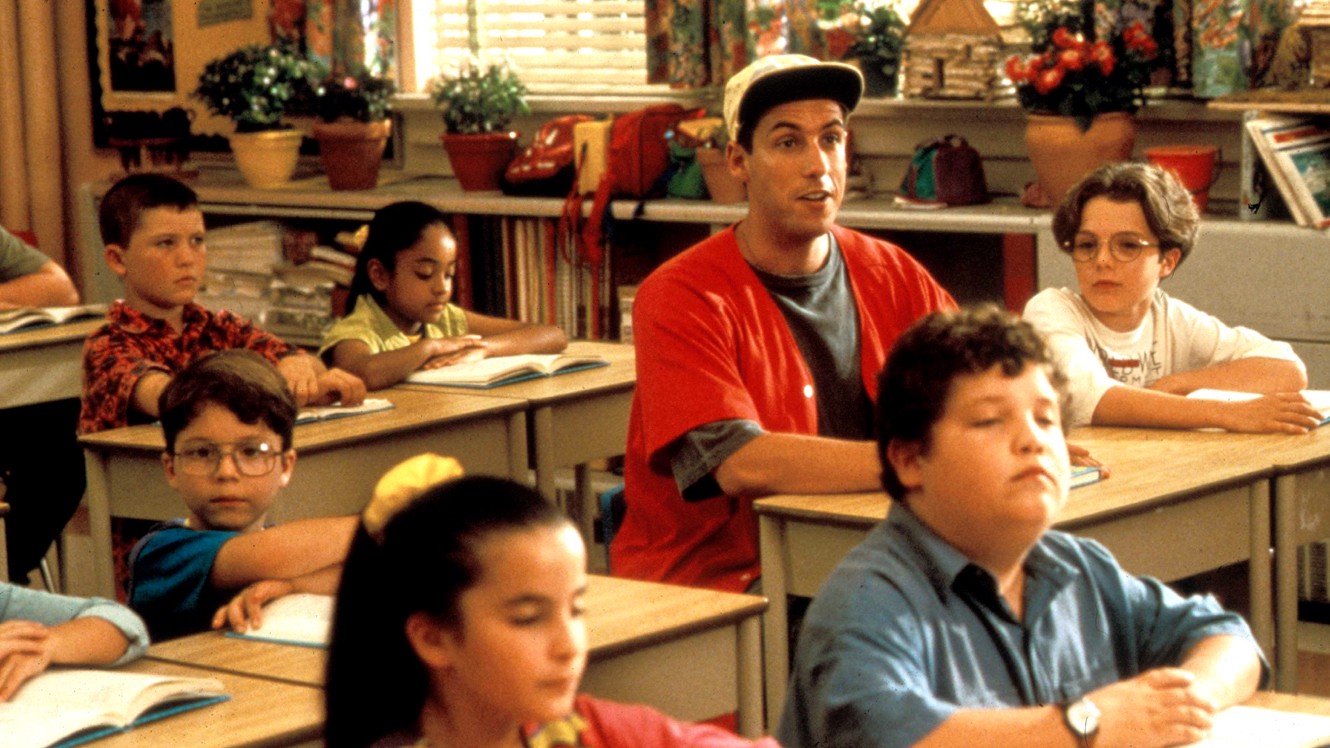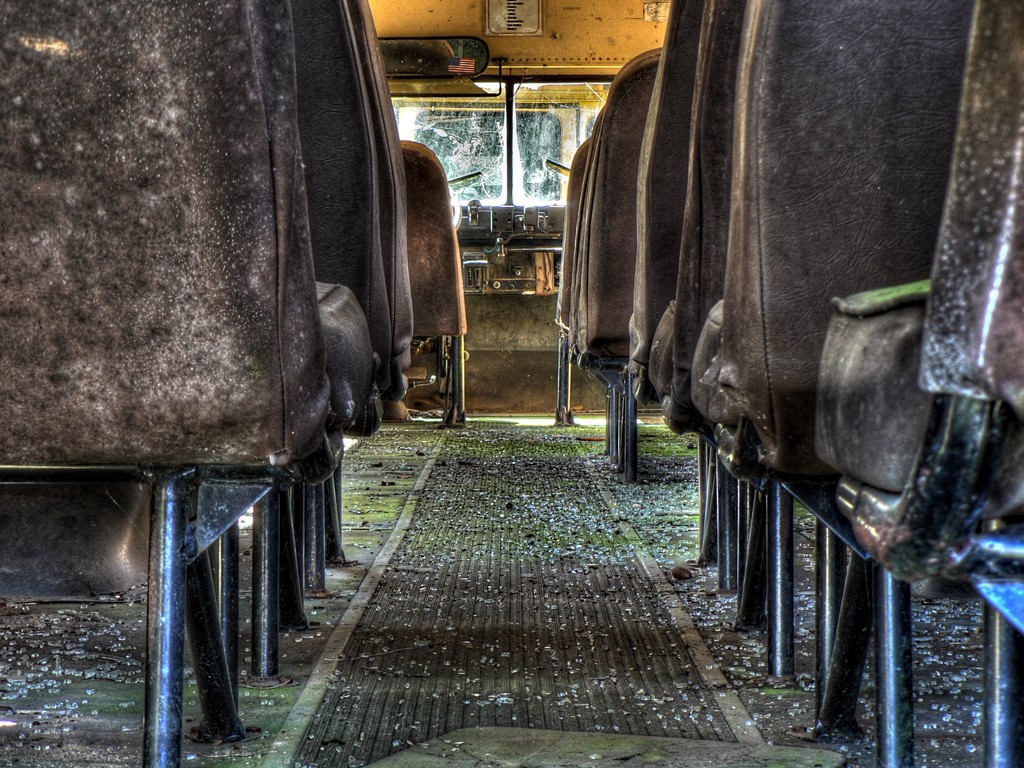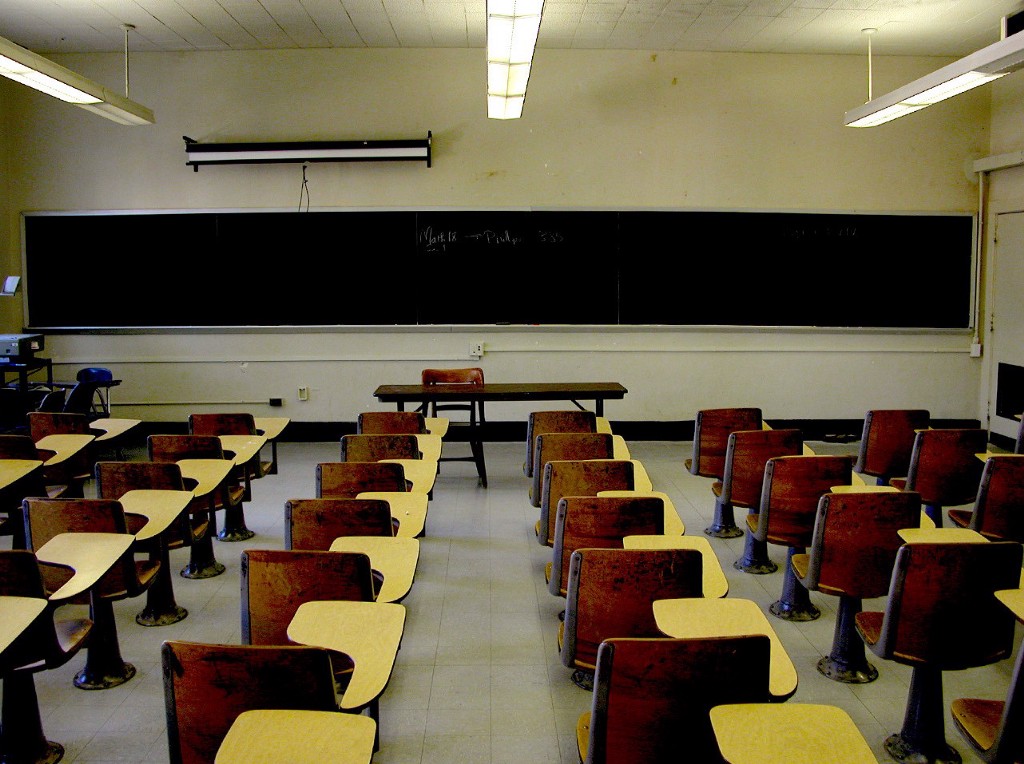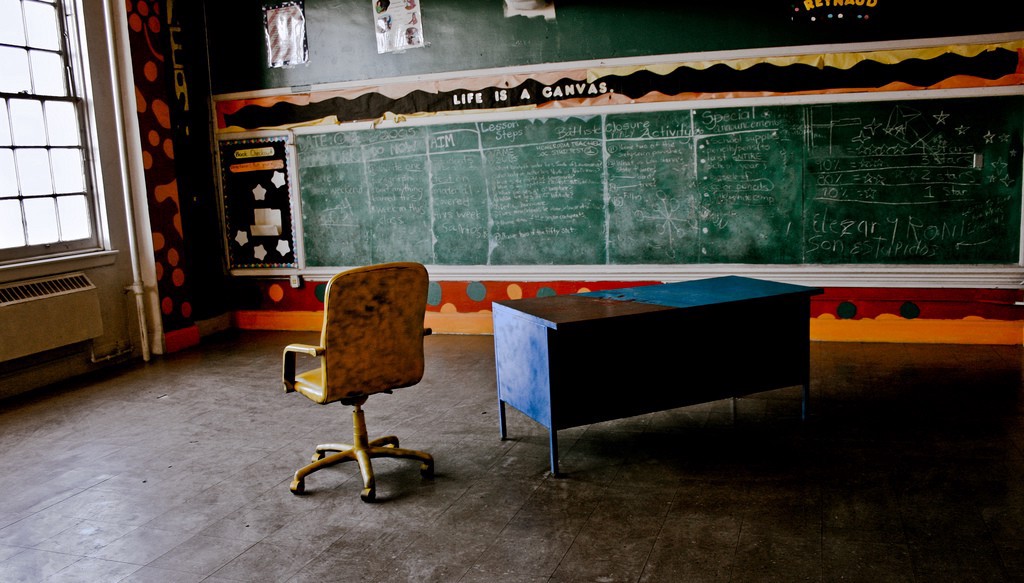Reading Lists
10 Stories for the Back to School Season
From Deb Olin Unferth to Donald Barthelme, we’ve unlocked fiction that captures the wonder and weirdness of school days at all ages

The back-to-school sensation hits many more of us than the returning teachers and students. Suddenly, stores are full of stationary supplies and advertisements are no longer for swimwear and getaways, but uniforms and unnecessary dorm-room decor. For some, the feeling might bring a twinge of nostalgia; for others, the unwelcome knock of memories from the most awkward years.
In the throes of mid-August, we’ve unlocked 10 stories from the Recommended Reading archives that will bring readers back to school without having to enter the building. These stories envision schools of the future and recall the institutions of the past; they sympathize with the adjunct professor, the terrified elementary student, the awkward teen, and the flustered parent. School might be approaching and summer ending, but there’s no reason to stop your pleasure reading. For just $5 a month, members of Electric Literature get access to the complete Recommended Reading archives of over 270 stories — and year-round open submissions. Membership is tax-deductible, helps us pay writers, and keeps all of our new content free. So if you like what you’ve read, please join today!

“Maroon” by Ladi Opaluwa
Recommended by Electric Literature
“You did not hear Pastor James knock,” writes Opaluwa in the opening paragraph of “Maroon.” And so we enter a story, written boldly in the second person, that follows the buildup to a rape we feel will happen — though we can’t, like the unnamed student victim, say exactly how we know this. The young woman’s narrative in “Maroon” sears because it is visceral, but her voice also insists that the story could be yours. It is a reminder that while school can be a safe haven, it can also be a place where we are most vulnerable to abuse of power.

“Tributaries” by Ramona Ausubel
Recommended by Electric Literature
In “Tributaries” love erupts as a new appendage, a “love-arm.” Ausubel investigates this reality through three tragic characters: a husband exhausted by his missing love-arm and the “debts and balances” of his life; his wife who, while young lovers preen each others’ love-arms, must oil her husband’s prosthesis; and their daughter’s teacher who has loved frenetically and suffers from a type of love-induced leprosy.

“Passing Each Other in Halls,” by Matt de la Peña
Recommended by One Teen Story
The story follows the course of one loopy night in Los Angeles, as the narrator and his friend P.J. prowl the streets and the clubs, talking tough but feeling vulnerable, reminiscing about high school and worrying about their prospects after their friends have left them for college. Peña’s narrator is — perhaps secretly — into vulnerability. He’s an aspiring poet, a romantic—who still isn’t confident in his kissing abilities.

“The School” by Donald Barthelme
Recommended by Steven Polansky
In Barthelme’s “The School” the best-laid plans for student enrichment—and a well-meaning teacher’s most earnest ideas—result in a failure and tragedy every time. This is a lesson in and of itself, and yet after all the dead trees and goldfish, even (spoiler!) dead children, perhaps the real lesson is that the children never lose their willingness to try, try again. “To describe it is to sound ridiculous,” writes Polansky in his introduction. “[It’s] a very funny story about death and the negation of meaning, and the only story ever written, by anyone, in which a resurrected gerbil is the bringer of hope.”

“Our Education” by Lincoln Michel
Recommended by Electric Literature
So many of childhood fantasies are, from the perspective of a worry-prone adult, nightmares: running away, becoming an orphan, living in a boxcar. Yet the realities of such disorder eventually trump our desire for it; any kid who has tried to run away knows the feeling of getting half way down the block with a backpack and thinking, in a word, crap. This is the moment in which we find the narrator of Lincoln Michel’s tale of scholastic anarchy. He is trapped in a school from which the teachers have all disappeared, but in his case, there is no option to break the fantasy, to go home.

“Reading In The Schools” by Hannah Rahimi
Original fiction, recommended by Electric Literature
This is the story of Abby who, in the midst of a divorce and recently relocated back to her parents’ home, is casting about for a sense of purpose. She lands as a Reader in the Schools, tasked with reading to a small child for an hour each week. It is a task that she is perhaps unqualified for — not because she lacks the requisite literacy, but rather because she’s in what she terms “a funny phase” in life — and she soon finds herself outmatched by the wonderfully prickly, seven-year-old Magda.

“Nadia” by Brit Bennett
Recommended by Angela Flournoy, excerpted from the novel THE MOTHERS
“Nadia” is a story about the ways that grief can send you reeling, and how the people we meet during grief’s bleakest moments can feel like the antidote to our pain, a solution to the unsolvable problem of loss. Shortly after a visit to a strip club while bunking off school, Nadia runs into Luke. “He didn’t treat her like everyone else at school, who either sidestepped her or spoke to her like she was some fragile thing one harsh word away from breaking,” writes Bennett. As Nadia works through the loss of her mother, she finds solace with an unexpected partner.

“All the Keys to All the Doors” by Clare Beams
Recommended by Megan Mayhew Bergman
Beams tells of the aging Cele, a benefactor and an unofficial elderwoman of a rather perfect town that is brought to a halt after a tragedy at the local school — the heart of Cele’s idyllic world. “All the Keys to All the Doors,” writes Bergman, reaches out to contemporary pain and asks a devastating and universal question: What is it like to “live with unlivable things”?

“Wait Till You See Me Dance” by Deb Olin Unferth
Recommended by Rebecca Schiff
Unferth, writes Rebecca Schiff is “a sentence-level dazzler who knows how to tell a story.” In this piece and in typical Unferthian style, an adjunct professor keeps repeating to her English 99 class that their final “will be graded by outside sources,” a phrase that absolves her of responsibility. Yet, she confides in the reader: “These outside sources were supposed to be mysterious, were maybe not even people…” In Unferth’s work, suspense grows out of sentences. Being playful on the page can be a matter of life and death.

“The Great Disaster” by Alanna Schubach
Original fiction recommended by Electric Literature
“The Great Disaster” unfolds through the eyes of a group of school children in a small American town after a large flood has struck their valley, bringing chaos and destruction and leaving behind dead bodies, mud, and mold. The children are too young to grasp the political, economic, and geographic implications of the tragedy, and yet they are just young enough to understand, viscerally, it’s philosophical and spiritual consequences. In this way, Schubach creates the perfect narrators for an intimate reading of a global event.
About Recommended Reading
Recommended Reading is the weekly fiction magazine of Electric Literature, publishing here every Wednesday morning. In addition to featuring our own recommendations of original, previously unpublished fiction, we invite established authors, indie presses, and literary magazines to recommend great work from their pages, past and present. The Recommended Reading Commuter, which publishes every Monday, is our home for flash and graphic narrative, and poetry. For access to year-round submissions, join our membership program on Drip, and follow Recommended Reading on Medium to get every issue straight to your feed. RecommendedReading is supported by the Amazon Literary Partnership, the New York State Council on the Arts, and the National Endowment for the Arts. For other links from Electric Literature, follow us, or sign up for our eNewsletter.








